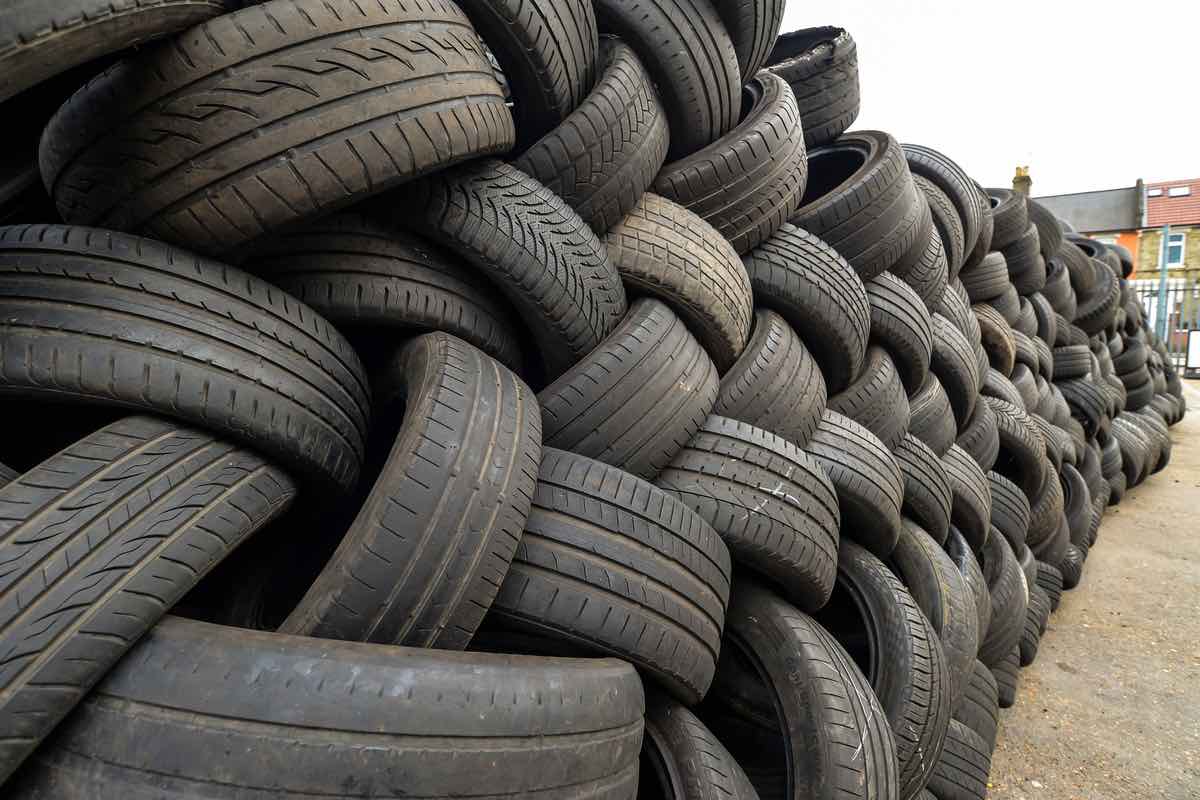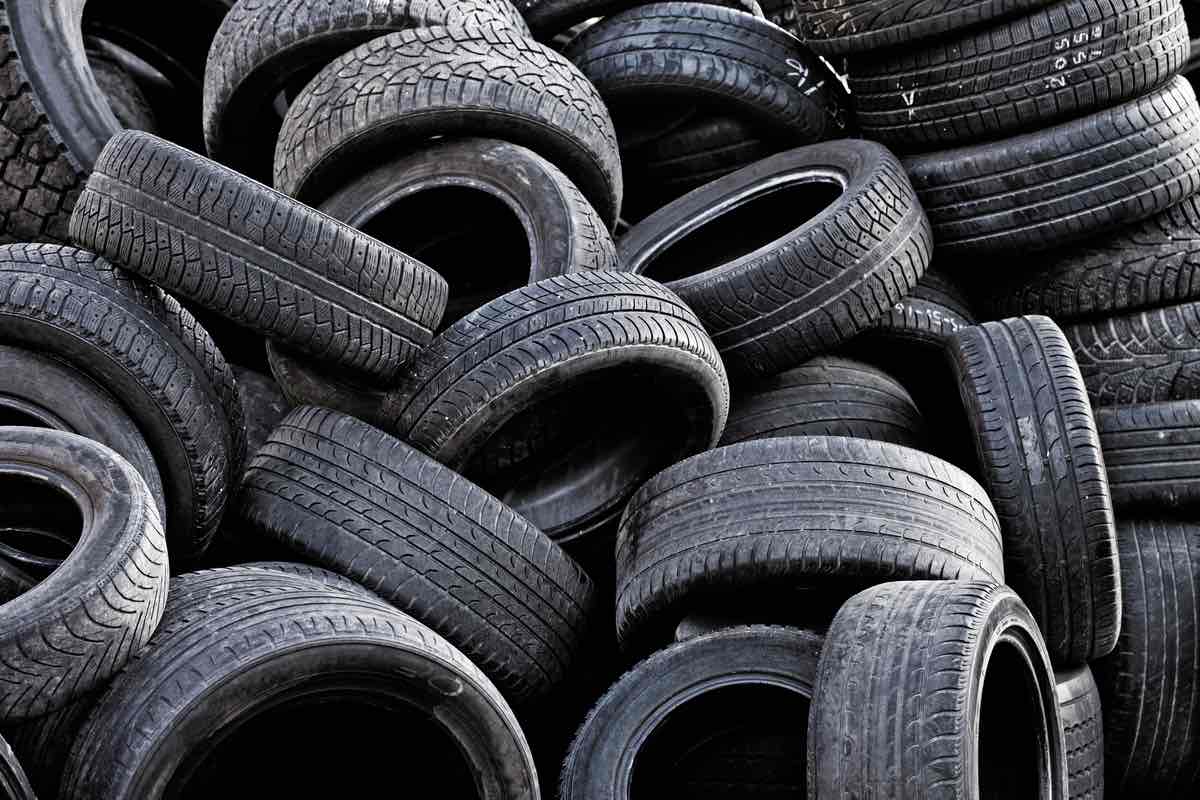Tires, whether they are used or not, all have an expiration date on them. New tires have a little more life in them compared to used ones. Regardless of never being used, that tire has an expiration date, like most other things.
Truck tires, just like anything else, have an expiration date. The life of a tire starts when it is made, not when it is used, and tires generally only last around six years. That means that your brand-new tire could expire in two years from when you bought it.
The maintenance of your vehicle is always essential. In this article, I will touch on tire safety and how long our tires are good for. Some things are easy to overlook, so this article will let you know how to find out if your tires are any good.

How To Find A Truck Tire’s Expiration Date
Although all tires have an expiration date, figuring out precisely how long your tires will last takes a bit of calculation and observation.
1. Find the Date of Manufacture
The most critical information on a tire is the manufacture date, which will lead you to a tire’s expiration date. This date is stamped on the tire to inform you when the manufacturer made it.
The manufacture date will most likely be on the outside wall of your tire. You will see a DOT code, but the last four digits of that code are what you are looking for.
2. Read the Manufacturing Code
Once you find the DOT code, how do you read it? It is a lot easier than you think.
Once you locate the code, look at the last four digits. The first two numbers in the code will tell you what week of the year those tires were made. For example, if the first two numbers are 16, your tires were made on the 16th week of the year.
The last two digits of the code will tell you the year. For example, if the code is 1622, the tire was made on the 16th week of 2022. More specifically, this tire was manufactured in April of 2022.
3. Calculate the Expiration Date
After finding the DOT code, you can calculate the expiration date. Most tires expire within six years of manufacture since rubber can only stay strong for so long. So, add six years to the year and week you found in the manufacturing code, and you have an expiration date.
Once you finish your calculation, write down the expiration date or even mark it in your Calendar on your phone. Doing so will help you keep track of when you need to get new tires.
How Long Do Truck Tires Last?
Now that you have located the DOT code and know how to read it, what does that mean?
Truck tires last for a maximum of six years. Just because you bought a brand-new tire does not mean the tire is not close to the expiration date. Always check the DOT code upon purchase to know how old that tire is.
If you do not check the date on the tire, you could end up purchasing a tire that you can only use for a year before it becomes unsafe.
Why Is the Expiration Date So Important?
Most everything has an expiration date, and when the time is up, that product has a chance of failing or going bad. When you buy food, you pay attention to the expiration date to ensure the product will not spoil. Why wouldn’t you do the same for something as critical as tires?
A tire’s expiration date is important since tires consist of rubber, and rubber deteriorates over time, making the tire less reliable the older it is. The older a tire is, the more likely it is to blow out or fail.
Weather and temperature are two critical factors in the breakdown of a tire. You also have to consider the wear and tear on that tire.
Have you ever been driving down the highway and seen tire pieces on the side of the road? When the tire has reached its lifespan, it will likely split apart due to the rubber breaking down. You can cause yourself to crash along with others if you ignore your tire’s condition and life span.
If you read this article, it explains the breakdown of the rubber and the different aspects that affect it.
How To Make Tires Last Longer
Tires do not always last a maximum of six years. You can do some things to try and prolong the life of your tire to get as close to the expiration date as possible:
- Make sure you check your tire pressure monthly. You lose tire pressure every month, and the temperature also affects it. When it is cold, the pressure drops — the opposite happens when it is warm.
- Get an alignment done twice a year. Potholes, among other things, can cause the alignment to get thrown off. When your alignment is off, it can cause issues with your tire treads.
- Minor upkeep on your tires will help you save money in the long run. Something as simple as rotating your tires can help save you money. Rotating your tires will keep the wear and tear of your treads even.
We all know that tires are not cheap. That is why knowing the manufacture date, expiration date, and doing the upkeep is essential.
You do not want to end up stranded or hurt because of an issue with your tires, nor would you want your splitting tires to be the reason someone else gets hurt.
Whether you are doing it yourself or having someone else do it, you will not regret the result. Paying a small amount on the upkeep will be much cheaper than buying a new set of tires.

Conclusion
Every tire has an expiration date, usually six years from the date of manufacture. To make your tires last that long, however, you’ll need to take good care of them.
You can compare your the lifespan of a tire to your phone’s battery life. It will run out at some point. If you are not paying attention, the battery will die. Nothing lasts forever, but you can get the most out of it when you do small things like rotating your tires, keeping track of the expiration date, and maintaining your vehicle.
